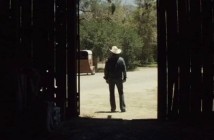Top 5 Time Travel Movies
Editor’s Notes: X-Men: Days of Future Past is currently open in wide release. Read Derek’s review (73/100).
Within the science-fiction genre, various conceptualizations of time-travel have been offered by the cinema. Indebted to 19th century literature, with H.G. Wells’ The Time Machine (1895) undeniably the most inspirational of the lot, time-travel has drawn interest in the cinema not only for the narrative possibilities it affords, but for its metaphysical nature only conveyable via fictional means. Cinema allows us to illustrate the impossible, to make visible what is unseen, and the best science fiction films render a glimpse of a world that, even if paradoxical or seemingly impossible, the cinema is able to make real.
A number of factors must be considered when critiquing time-travel films. How is time-travel employed in the film? Is it a major plot concern or is it merely incidental? Does the film attempt to explore the philosophical consequences of time-travel, or does this fall to the wayside in lieu of a more entertaining narrative and character study? Perhaps most interestingly: what concept of time-travel is used? Fixed timeline, dynamic timeline, multiverse?
All things considered, time traveling itself must be integral to the narrative for the film to be considered as one of the best time-travel films. It must be essential to the story, with the film’s themes only intelligible when time-travel has been considered. Some films, such as The Butterfly Effect, It’s a Wonderful Life, and 2001: A Space Odyssey are questionable, as traveling through time isn’t quite what occurs here—despite the narratives’ obvious concerns with time, history, and change.
Since television will not be included, I will note here the two best realized instances of time-travel in television: Lost and Dragonball Z. While the childhood (or adulthood) classic, Dragonball Z boasts a grand multiverse time-travel concept that is very tightly managed, Lostis one of the first, and perhaps best, fictional accounts of what Leibniz (a universal Genius) called pre-established harmony. In Lost, time-travel in a fixed timeline will not change anything in the future, because whatever one does in the past will have already been determined. Leibniz’ pre-established harmony allows one to consider oneself in a deterministic world that does not negate free will. Though our actions are leading and an end is determined, we are free to act in the world: our free actions are simply in harmony with what has been pre-determined. Few films have as intricate and well-detailed accounts of time-travel as these two television programs.
Honorable Mentions: Primer, Donnie Darko, Terminator, Terminator 2, Time Crimes, Time Bandits, The Time Traveler’s Wife, Pleasantville




